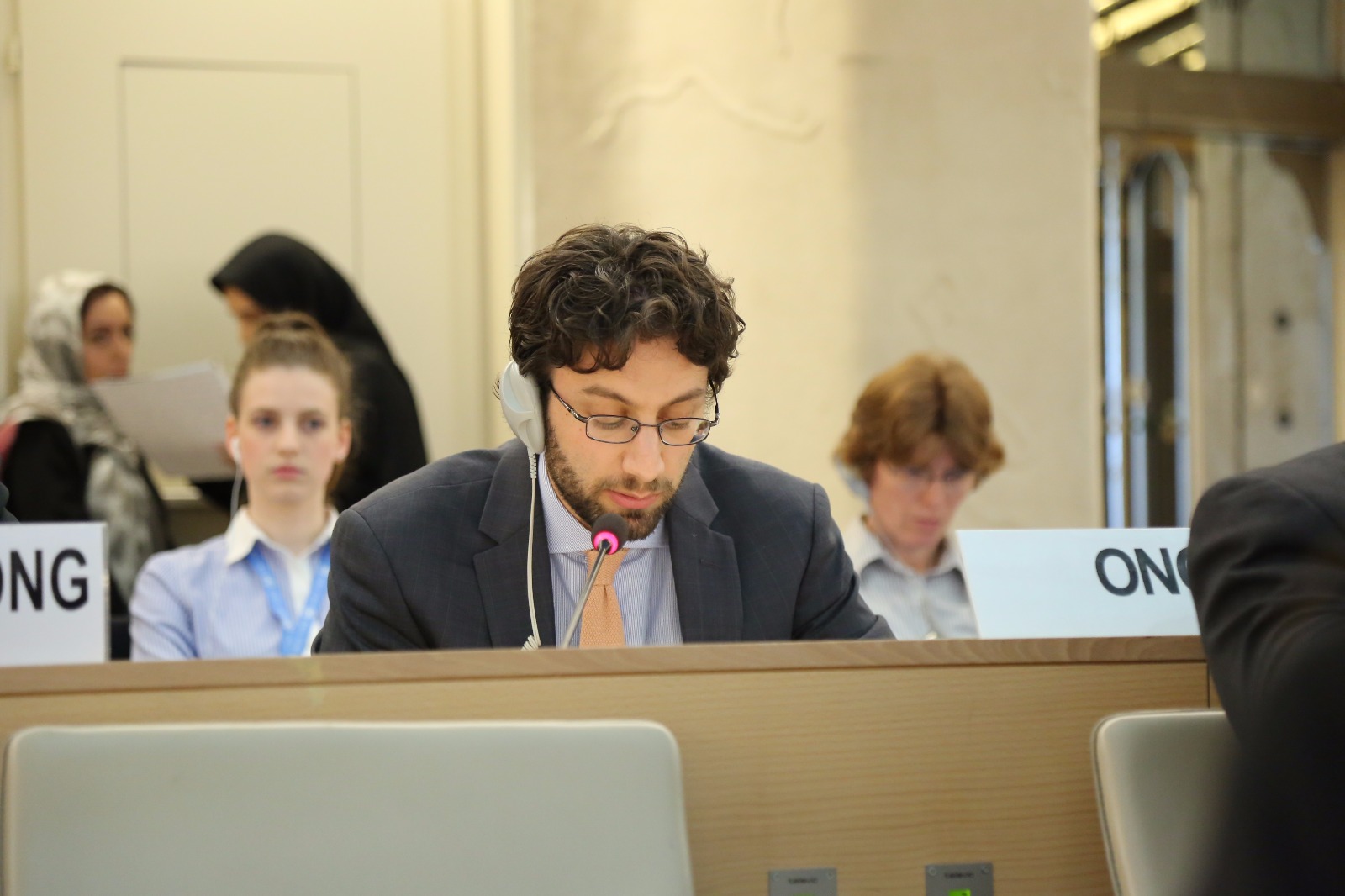On Tuesday 25 June 2019, at the 41st session of the United Nations Human Rights Council in Geneva, an Advocacy Officer delivered an intervention under ADHRB during the Item 2 General Debate with the High Commissioner. In his remarks, the Officer thanked the High Commissioner for her comments made in April 2019, regarding the recent execution of 37 individuals by the Saudi government. The intervention also highlighted concerns over Ali al-Nimr, Dawood al-Marhoon, and Abdullah al-Zaher, who are currently at imminent risk of execution. The intervention noted that despite the lifting of the driving ban women still face significant barriors. Continue reading for the full text of his remarks, or click here for a PDF of his comments.
Madame High Commissioner,
Alsalam and ADHRB welcome your report and we thank you for your hard-working efforts to highlight the human rights crisis in Saudi Arabia throughout your mandate as High Commissioner.
We note with particular appreciation your comments in April 2019, regarding the recent execution of 37 individuals by the Saudi government. Among those who were executed was Mujtaba Nader al-Sweikat, a student arrested in 2012 at the age of 17 for his participation in pro-democracy protests in 2012. He was detained for several years on false charges of “armed disobedience against the king” and tortured, before being beheaded. Munir Al Adam, a disabled man was also executed as were three men arrested for crimes they allegedly committed as minors.
We thank you for your swift response to these executions, but remain concerned for Ali al-Nimr, Dawood al-Marhoon, and Abdullah al-Zaher, who are currently at imminent risk of execution.
We also remain concerned over the current situation toward women human rights defenders in Saudi Arabia. Following the 2018 lift of driving ban, multiple women’s rights defenders were arrested because of their activism and some were tortured in prison including through the use of electric shocks, whippings, and sexual harassment.
Madam High Commissioner, abuses like these conducted by the Kingdom of Saudi Arabia occur on a daily basis and cannot be accepted by the international community. We call upon the Council to pressure Saudi Arabia to bring its actions in line with international standards of human rights.
Thank you





